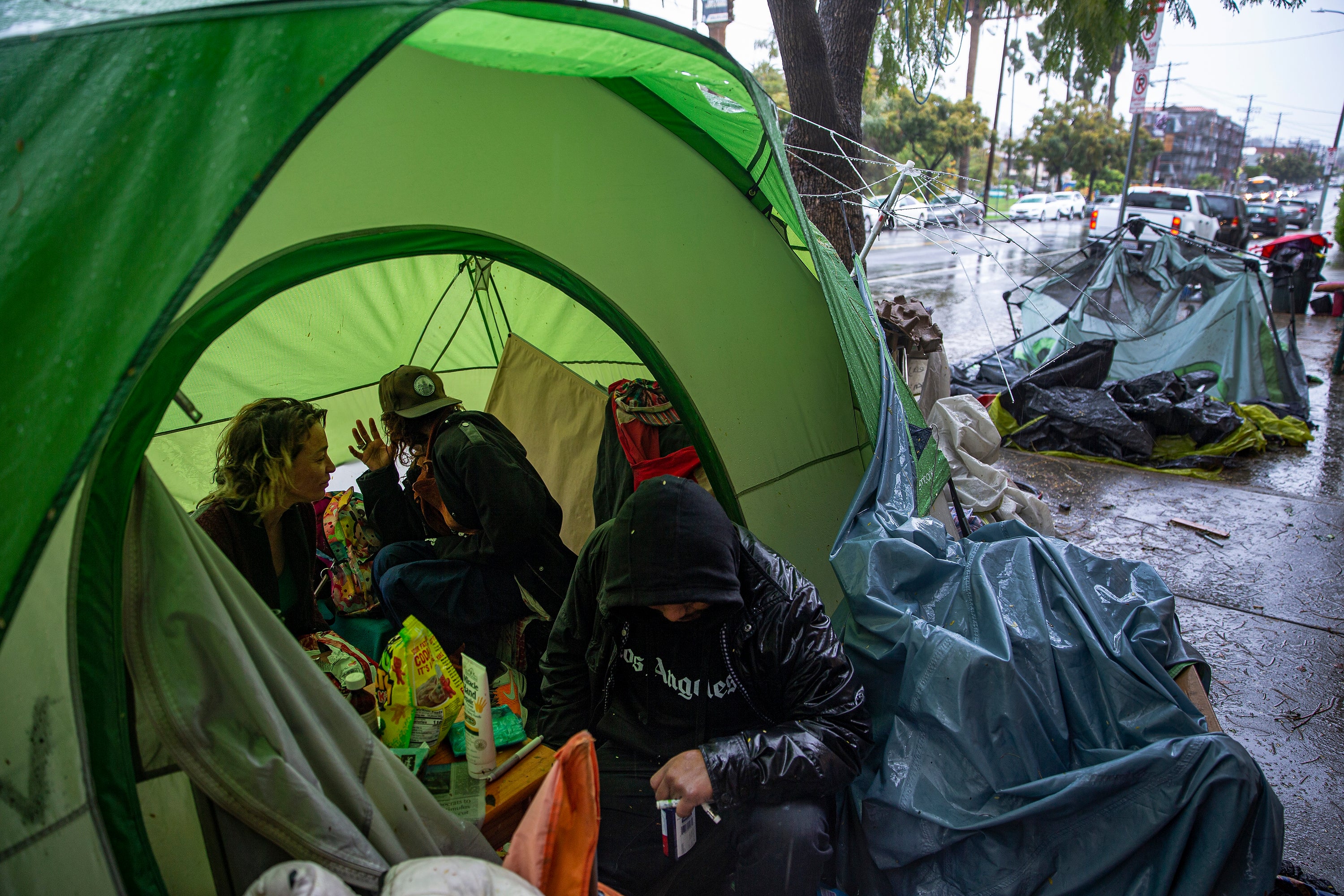LA homeless spending could near $1B as crisis rages
Faced with an out-of-control homeless crisis, Los Angeles Mayor Eric Garcetti is planning to spend nearly $1 billion in the coming year in hopes of getting thousands of unhoused people off the streets

Your support helps us to tell the story
From reproductive rights to climate change to Big Tech, The Independent is on the ground when the story is developing. Whether it's investigating the financials of Elon Musk's pro-Trump PAC or producing our latest documentary, 'The A Word', which shines a light on the American women fighting for reproductive rights, we know how important it is to parse out the facts from the messaging.
At such a critical moment in US history, we need reporters on the ground. Your donation allows us to keep sending journalists to speak to both sides of the story.
The Independent is trusted by Americans across the entire political spectrum. And unlike many other quality news outlets, we choose not to lock Americans out of our reporting and analysis with paywalls. We believe quality journalism should be available to everyone, paid for by those who can afford it.
Your support makes all the difference.Faced with an out-of-control homeless crisis, Los Angeles Mayor Eric Garcetti on Monday will propose spending nearly $1 billion in the coming year to get people off the streets, build housing and clean up squalid encampments that have spread into nearly every neighborhood in the city.
The proposal for record-level spending comes as City Hall has faced widening criticism for its inability to restrain the growth of homelessness, even though city investments in programs aimed an unhoused people have soared nearly sevenfold since 2016.
Like many big cities, Los Angeles has struggled for decades with a homeless population. But while it was once largely confined to the notorious Skid Row neighborhood in downtown, rows of tents, cardboard shelters, battered RVs and makeshift plywood structures are now familiar sights. The famous drive down palm tree-lined Sunset Boulevard is dotted with encampments small and large, often surrounded by heaps of trash and discarded clothing.
Garcetti’s office provided details on the spending plan, which the mayor will discuss later Monday in his annual address to the City Council. Matt Szabo, Garcetti's deputy chief of staff, said the proposal “begins to meet the need our homelessness crisis demands."
The funding will include nearly $100 million from the federal COVID rescue package, and the city hopes county, state and federal governments will continue to expand their financial assistance.
Mike Arnold, president and CEO of the Midnight Mission, which provides beds, meals and drug rehabilitation services on Skid Row, called the proposal “great news” but worried the dollars would taper off after one year.
He said he hoped the cash infusion would help speed up the sluggish rollout of a 2016 bond measure approved by voters to create 10,000 housing units over a decade.
Arnold points to New York City which has roughly the same number of homeless residents as Los Angeles and spends about a billion dollars every year to address its crisis. Currently only about 25% of Los Angeles County’s 66,000 homeless residents are benefiting from available resources, Arnold estimates.
Arnold also fears that the city’s money will be misspent.
First, he said, the city needs enough shelter beds for the newly homeless. Then it needs interim housing for people with longer-term needs, like addiction counseling or mental health treatment.
“And we also need affordable housing for low-income people who are mostly self-sustaining, who need just a leg up. That is how a system is supposed to work,” Arnold said.
The $955 million proposal will be included Tuesday in the mayor's annual budget blueprint, which must be approved by City Council.
John Maceri, CEO of The People Concern, one of L.A.’s largest housing and social services agencies serving the homeless, welcomed the new funds but added, “We have a long way to go.”
Along with additional money, he said the city needs to cut red tape to increase financing and housing construction on a broad scale, while funding services for the homeless, many of whom suffer from drug and mental health issues.
Taken together, “that’s the answer,” Maceri said.